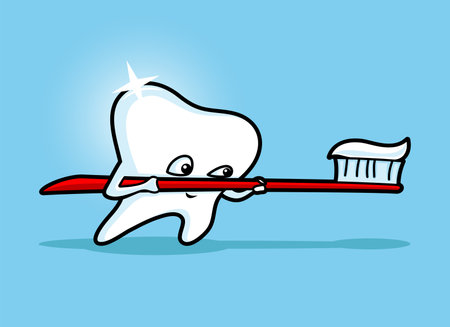Understanding Pet Dental Health
When it comes to caring for our beloved cats and dogs in the UK, dental health is often overlooked, yet it plays a crucial role in their overall wellbeing. Just like humans, pets can suffer from a range of dental problems, including plaque buildup, gum disease (periodontal disease), tooth decay, and even tooth loss. In fact, studies have shown that by the age of three, most cats and dogs will have some form of dental disease. These issues are particularly prevalent among breeds with crowded teeth or those fed on diets high in soft foods. Poor dental health doesn’t just cause bad breath or discomfort; it can lead to more serious health concerns such as infections that spread to the heart, liver, or kidneys. Therefore, maintaining your pet’s oral hygiene is essential not only for their comfort but also for preventing costly medical conditions down the line. Understanding the importance of dental care is the first step towards ensuring your furry friend leads a healthy, happy life.
2. What is Pet Dental Insurance?
Pet dental insurance is a specific type of policy designed to help cover the costs associated with maintaining your cat or dog’s oral health. Unlike standard pet insurance, which typically focuses on accidents, illnesses, and sometimes routine care, dental insurance for pets zeroes in on problems related to teeth and gums. In the UK, this form of cover has gained traction as awareness grows about the link between oral health and overall wellbeing in our furry companions.
How Does Dental Insurance Differ from General Pet Insurance?
While general pet insurance may include some dental coverage as an add-on or within premium plans, it often excludes many common dental treatments unless they result directly from an accident. Dedicated dental policies, however, are tailored to address a broader range of oral issues. Here’s a quick comparison:
| General Pet Insurance | Dental-Specific Insurance | |
|---|---|---|
| Accident-related dental injuries | Usually Covered | Covered |
| Dental illness (e.g. gum disease) | Rarely Covered | Covered |
| Routine check-ups/cleaning | Rarely Covered | Sometimes Covered (depending on policy) |
| Extractions & advanced procedures | Limited Coverage | Covered (up to limits) |
What Does Pet Dental Insurance Typically Cover in the UK?
The specifics vary by provider, but most UK pet dental insurance policies cover:
- Treatment for dental diseases such as gingivitis and periodontal disease
- Surgical procedures like tooth extractions or abscess treatment
- Treatment following accidents that damage teeth or jaws
- Pain relief and necessary medications related to oral health
A Note on Exclusions and Conditions
It’s important to note that many insurers require proof of regular dental check-ups to maintain cover, and pre-existing conditions are generally excluded. Routine cleaning may be included in higher-tier policies but is not universal. Always review your policy details to ensure you understand what is and isn’t covered when protecting your pet’s smile.
![]()
3. Benefits of Dental Insurance for Cats and Dogs
Securing dental insurance for your cat or dog offers several tangible benefits, particularly when you consider the rising cost of veterinary care across the UK. One of the most immediate advantages is cost savings. Dental treatments, such as scale and polish procedures, tooth extractions, or management of gum disease, can quickly become expensive. With an appropriate insurance policy, pet owners are often reimbursed for a significant portion of these costs, making it easier to budget and avoid unexpected financial strain.
Another crucial benefit is preventative care. Many dental insurance plans cover annual check-ups and routine cleanings. This means you are more likely to take your pet for regular dental assessments, helping to catch potential issues early before they escalate into more severe health problems. Early intervention not only preserves your pet’s comfort and wellbeing but also reduces the likelihood of costly emergency treatments later on.
Moreover, dental insurance provides access to quality veterinary services. Knowing that part of the expense is covered empowers owners to choose reputable practices and experienced professionals without being solely governed by price. This ensures your pet receives the best possible care, using up-to-date techniques and equipment that may otherwise be out of reach. Ultimately, having dental insurance for your cat or dog is about more than just peace of mind—it actively supports a proactive approach to their health and happiness, safeguarding their smile for years to come.
4. The Cost of Veterinary Dental Care in the UK
When it comes to caring for your cat or dog, dental health is often underestimated until an issue arises. In the UK, veterinary dental care is considered a specialist service, and this is reflected in the costs pet owners may face. Routine check-ups and cleaning are only the beginning; should your pet require more advanced treatments such as extractions or periodontal surgery, the expenses can quickly escalate.
Typical Expenses for Common Dental Treatments
| Treatment Type | Average Cost (GBP) |
|---|---|
| Routine dental check-up | £40 – £80 |
| Scale and polish (anaesthetic included) | £150 – £350 |
| Single tooth extraction | £120 – £250 |
| Multiple extractions/surgical procedures | £400 – £1,000+ |
| X-rays (per session) | £80 – £200 |
The Role of Insurance in Managing Dental Costs
Given these figures, it’s clear that even routine dental care can be a significant financial commitment, especially if you have more than one pet. This is where pet dental insurance becomes invaluable. Most comprehensive policies will cover both routine preventative treatments and emergency procedures, greatly reducing out-of-pocket expenses. For example, some insurers offer annual limits specifically for dental work—sometimes up to £2,000 per year—which can cover the majority of typical treatments.
Navigating Policy Terms
It’s crucial to note that not all policies are created equal. Some may only cover dental injuries resulting from accidents, while others also include illnesses such as gum disease. Always review policy documents carefully and consult your vet if you are unsure about what level of cover your pet might need.
Financial Peace of Mind
In summary, investing in dental insurance for your cat or dog provides both peace of mind and practical financial support. With veterinary costs on the rise across the UK, having robust insurance ensures you’re prepared for both routine care and unexpected issues—so your pet can enjoy a healthy smile without putting undue strain on your household budget.
5. How to Choose the Right Dental Insurance Policy
Selecting the most suitable dental insurance policy for your cat or dog can feel daunting, given the variety of options available across the UK. Here are some practical pointers to help you navigate this process and ensure your pet’s oral health is well-protected.
Assess Your Pet’s Needs
Begin by considering your pet’s age, breed, and any pre-existing dental issues. Certain breeds are more susceptible to dental problems, and older pets may require more comprehensive cover. Reflect on your pet’s unique requirements before comparing policies.
Understand What’s Covered
Dental insurance policies for pets can vary significantly in what they include. Some only cover accidents resulting in dental injury, while others also extend to illnesses such as gum disease or tooth decay. Always read the small print and seek a policy that covers both accident and illness if possible.
Check Preventive Care Benefits
Policies that offer preventive care—such as annual dental check-ups, cleanings, and scale-and-polish treatments—can help you manage ongoing oral health needs and catch issues early. This not only supports your pet’s wellbeing but can reduce long-term costs.
Evaluate Excesses and Limits
Pay close attention to excess amounts (what you pay before the insurer contributes) and annual claim limits specific to dental treatment. A lower excess and higher coverage cap can provide better value, especially if your pet requires frequent dental care.
Compare Waiting Periods and Exclusions
Most UK policies impose a waiting period before cover starts, particularly for dental claims. Be aware of how long you’ll need to wait before making a claim. Additionally, note any exclusions—many insurers do not cover pre-existing dental conditions or cosmetic procedures.
Seek Reputable Providers
Choose insurers with strong reputations for customer service and straightforward claims processes. Look for reviews from other pet owners and consider whether the provider is regulated by the Financial Conduct Authority (FCA).
Ultimately, investing time in choosing a comprehensive dental insurance policy tailored to your pet’s needs will help keep their smile bright and healthy while offering peace of mind against unexpected veterinary bills.
6. Tips for Maintaining Your Pet’s Dental Health
Whether you have dental insurance for your pet or not, keeping your cat or dog’s teeth and gums healthy is a crucial part of responsible pet ownership. Here are some practical tips tailored for British pet owners to help support your furry friend’s oral hygiene.
Establish a Brushing Routine
Regular tooth brushing remains the gold standard for preventing plaque and tartar build-up in pets. Use a soft-bristled toothbrush and toothpaste designed specifically for animals—never use human toothpaste, as it can be harmful. Aim to brush your pet’s teeth several times a week, if not daily. It might take patience and practice, but most cats and dogs can become accustomed to the routine over time.
Provide Dental-Friendly Chews and Toys
Chewing is a natural behaviour that can help maintain oral health. Choose vet-approved dental chews or toys that are specifically designed to reduce tartar and massage gums. These are widely available at local pet shops across the UK, and many are recommended by the British Veterinary Dental Association.
Schedule Regular Vet Check-Ups
Routine veterinary visits allow early detection of dental issues before they become serious or costly. If you have dental insurance, these check-ups may be partially or fully covered, making it easier to stay on top of your pet’s oral care. Without insurance, preventative care is still more cost-effective than treating advanced dental disease.
Monitor Diet and Treats
A balanced diet supports overall health, including oral wellbeing. Some specialised pet foods are formulated to promote dental health by reducing plaque build-up. Avoid giving your pet sugary treats or table scraps, as these can contribute to dental decay.
Be Alert to Signs of Dental Problems
Watch for signs such as bad breath, difficulty eating, pawing at the mouth, or visible tartar and inflamed gums. Early intervention is key—promptly consult your vet if you notice any of these symptoms.
The Bottom Line: Insurance Helps, But Prevention Is Key
Dental insurance offers peace of mind and financial support when problems arise, but everyday actions play a huge role in protecting your pet’s smile. By combining regular home care with professional advice—whether insured or not—you’ll give your cat or dog the best chance of maintaining strong teeth and healthy gums throughout their life.


